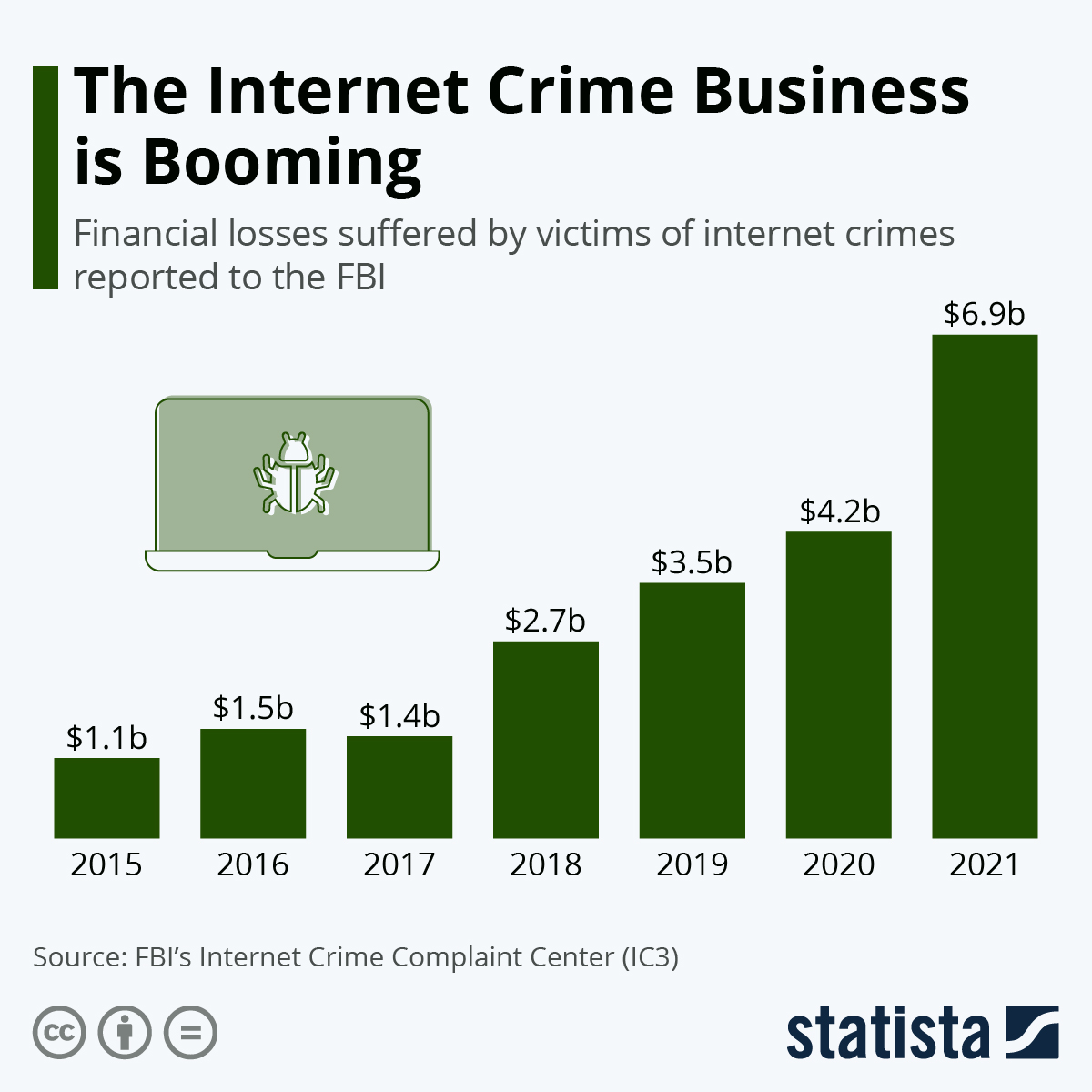
The FBI's Internet Crime Complaint Center (IC3) has released its 2021 Internet Crime Report which found that 2021 was another record year for both victims of internet crime and dollar losses in the United States.
847,376 complaints were logged by IC3 in the last calendar year with total losses amounting to $6.9 billion. As Statista's Martin Armstrong reports, the most frequent internet crimes recorded in 2021 were some form of Phishing/Vishing/Smishing/Pharming.
You will find more infographics at Statista
2020 was notable for the emergence of schemes exploiting the Covid-19 pandemic with both individuals and businesses targeted.
Some 28,500 complaints were received relating to Covid-19 scams that year with most of them aimed at the Coronavirus Aid, Relief, and Economic Security Act (CARES Act). In 2021, the pandemic is still being taken advantage of, as IC3 reports:
"The pandemic and the restrictions on in-person meetings led to increases in telework or virtual communication practices...
IC3 has observed an emergence of newer BEC/EAC schemes that exploit this reliance on virtual meetings to instruct victims to send fraudulent wire transfers."
Business Email Compromise and Email Compromise schemes (BEC/EAC) were the costliest internet crimes last year with adjusted losses of nearly $2.4 billion.
The FBI’s Internet Crime Complaint Center (IC3) has released its 2021 Internet Crime Report which found that 2021 was another record year for both victims of internet crime and dollar losses in the United States.
847,376 complaints were logged by IC3 in the last calendar year with total losses amounting to $6.9 billion. As Statista’s Martin Armstrong reports, the most frequent internet crimes recorded in 2021 were some form of Phishing/Vishing/Smishing/Pharming.
You will find more infographics at Statista
2020 was notable for the emergence of schemes exploiting the Covid-19 pandemic with both individuals and businesses targeted.
Some 28,500 complaints were received relating to Covid-19 scams that year with most of them aimed at the Coronavirus Aid, Relief, and Economic Security Act (CARES Act). In 2021, the pandemic is still being taken advantage of, as IC3 reports:
“The pandemic and the restrictions on in-person meetings led to increases in telework or virtual communication practices…
IC3 has observed an emergence of newer BEC/EAC schemes that exploit this reliance on virtual meetings to instruct victims to send fraudulent wire transfers.”
Business Email Compromise and Email Compromise schemes (BEC/EAC) were the costliest internet crimes last year with adjusted losses of nearly $2.4 billion.





